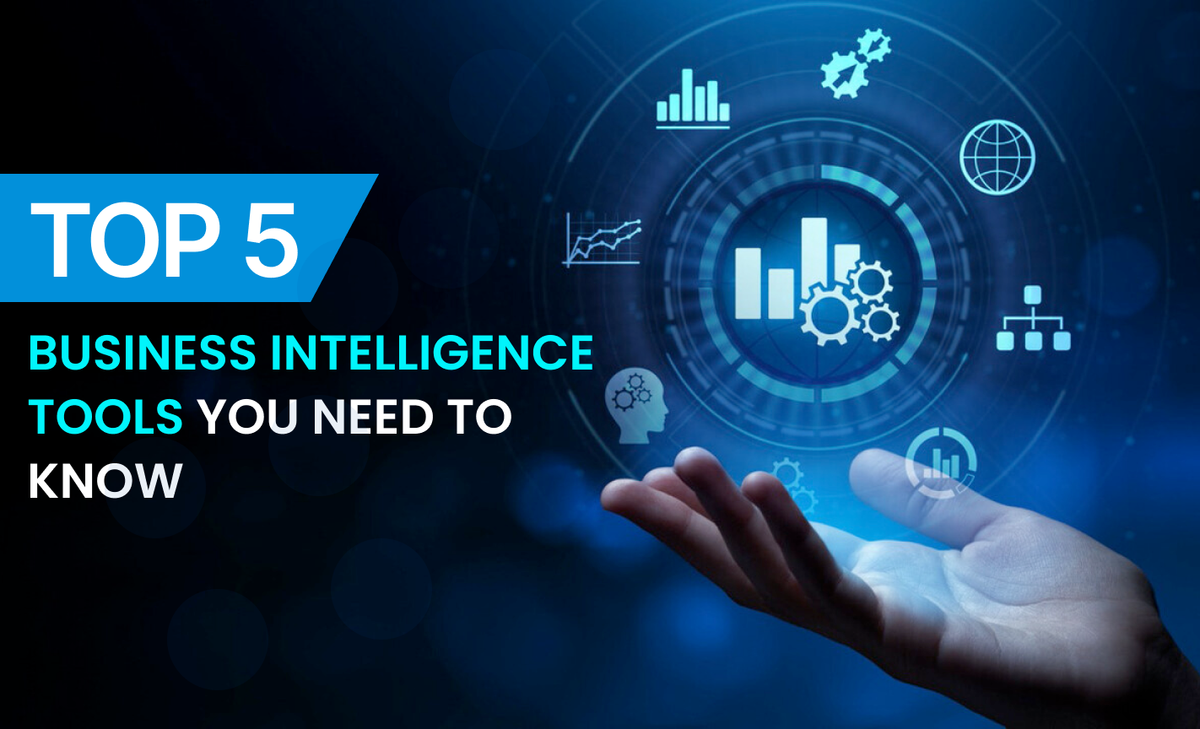Last Updated on May 17, 2023 by Team Experts
Business Intelligence or BI tools are an integral part of any organisation. They help the management take strategic steps and actionable insights that lead to the overall progress of the company.
What is a Business Intelligence Tool?
Business Intelligence tools help a business analyse large chunks of both structured and unstructured data sources such as emails, books, documents, images, social media posts, images, journals, etc. and presents them in comprehensible formats. This analysed data may be available in the form of dashboards, graphs, reports and charts.
The BI tools help in performing various functions like data visualization, text mining, data mining, predictive analytics, performance management, reporting, analytics and more. It allows the business to make informed decisions that are based on market trends, predictions and KPIs or Key Performance Indicators.
What are the Benefits of Business Intelligence Tools?
Business Intelligence tools allow businesses to make smarter decisions and accomplish bigger goals. Some benefits of BI tools include:
Centralized Data
Companies collect their data from many sources, including CRM systems, portals, ERP systems, databases and more. To collate all this data and for it to make sense, the business must implement BI tools to analyse and create more useful data that can be easily comprehended. BI tools are able to create different views of this data in the form of analytics, trends, or issues – depending on the queries that a business has.
Company’s Data
With BI tools around, the data is not limited to a specific department such as IT; instead, it becomes more accessible to the employees working in the organization. Employees with or without any expert technical knowledge would be able to analyse data for their teams to generate reports and work accordingly.
Business Predictions
BI tools give easy access to a lot of useful data that can be used to make evidence-based and fruitful decisions. Forecasting and predictive analysis allow users to create visions that are based on the performance history of a product or service. Business Intelligence tools are able to detect any changes in the business conditions and inevitably locate the anomalies so the management can easily take care of the disruptions that may come their way.
Automatic Report Generation
BI tools are automated; you don’t need to input data in Excel sheets or use multiple tools to generate data. If a department requires a specific report from a specific period of time, then the BI tool will easily generate it for them. Furthermore, the information or report can also be downloaded as graphs or charts. It can also be added to presentations for interactive visualizations.
Lowers Business Cost
BI tools can multitask for you. They can perform several tasks, including forecasting sales, analysation of customer behaviour, real-time process monitoring and more. Process reporting has become several times more precise and efficient than it was before without them. BI tool users accept that using them has allowed the business to lower costs and enhance earnings.
Top 5 Business Intelligence Tools
There are several BI tools available – each tool has its own set of advantages. While it is difficult to shortlist just 5, we have collated a top 5 list of BI tools for you.
1. Microsoft Power BI
Microsoft Power BI is a commonly used tool that can be easily downloaded for use. You can run it either on a reporting server or using the cloud. It can be synced with different sources, such as Oracle, Facebook, Instagram, etc., to generate different types of dashboards and reports in no time. This interactive BI tool comes with data connectors, AI abilities and Excel integration. It also offers real-time access monitoring and end-to-end data encryption to its users.
2. Tableau
While Tableau is famous among users for its user-friendly data visualization abilities, it offers a lot of other features too. Some of these features include drag-and-drop buttons to locate various trends in data, visual analytics and more. It supports different types of data sources, including Box, Microsoft Excel, Google Analytics, PDF files and more. Tableau is a versatile BI tool that can connect with almost any database.
3. Qlik
Qlik or Qlik Sense is a unique BI tool that supports different types of analytics use cases, including embedded and custom analytics, guided applications and dashboards and more. It has an extremely easy-to-use interface that is optimized for high-performance cloud platforms, advanced AI and touchscreens. Features such as Search and Conversational Analytics and Associative Exploration Ability allow the users of Qlik to ask different types of queries and unearth various actionable insights that can help the users (especially those new to BI) understand data in-depth.
4. Trillium
For those that are a self-serving team of analysts, getting different types of data sources is the most significant thing. While consolidating and cleaning the data may take a few months, Trillium speeds up this process, ensuring the analysis is completed in just a month. Trillium runs on two things Refine and Prepare – that are automated to sync various data sources and merge all of them in a single accessible place. Refine removes all incomplete records and disputable entries and presents a clean and polished dataset. The data obtained from Trillium can be fed to Qlik or Tableau for beautiful data visualizations.
5. Sisense
Sisense works on two principles – simplify and streamline. Data can be exported from sources such as Salesforce, Google Analytics, etc. It uses an in-chip technology that processes data faster than most other BI tools. Some of the notable features of Sisense include drag-and-drop features, fully customizable services (known as white-label analytics), and more. It allows users to share dashboards and reports both internally and externally.
BIRT, Logi Analytics, MicroStrategy, Datapine, Oracle BI, IBM Cognos Analytics, Clear Analytics, HubSpot, Domo, Yellowfin, Zoho Analytics, and Tibco Spotfire are also a few BI tools that are immensely useful.

